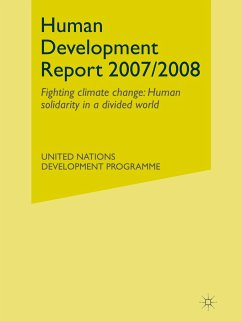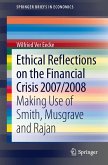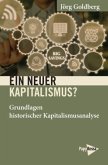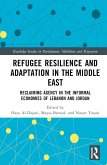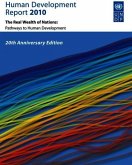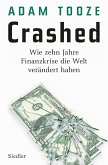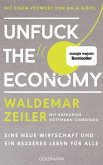The UNITED NATIONS DEVELOPMENT PROGRAM is the UN's global development network, advocating for change and connecting countries to knowledge, experience and resources to help people build a better life. They are on the ground in 166 countries, working with them on their own solutions to global and national development challenges. As they develop local capacity, they draw on the people of UNDP and their wide range of partners. Every year since 1990, the UNDP has commissioned the Human Development Report by an independent team of experts to explore major issues of global concern.
'The Human Development Report 2007/2008 comes at a time when climate change long on the international agenda is starting to receive the very highest attention that it merits. The recent findings of the Intergovernmental Panel on Climate Change have sounded a clarion call; they have unequivocally affirmed the warming of our climate system, and linked it directly to human activity.' Ban Ki-moon, Secretary-General of the United Nations
'The Human Development Report 2007/2008 should be mandatory reading for all governments, especially those in the world's richest nations. It reminds us that historic responsibility for the rapid build-up of greenhouse gases in the Earth's atmosphere rests not with the world's poor, but with the developed world. It is people in the richest countries that leave the deepest footprint. The average Brazilian has a CO2 footprint of 1.8 tonnes a year compared with an average for developed countries of 13.2 tonnes a year. As the Human Development Report reminds us, if every person in the developing world left the same carbon footprint as the average North American we would need the atmospheres of nine planets to deal with the consequences.' Luiz Inácio Lula da Silva, President of the Federative Republic of Brazil
'Development cannot be divorced from ecological and environmental concerns. Indeed, important components of human freedoms and crucial ingredients of our quality of life are thoroughly dependent on the integrity of theenvironment.' Amartya Sen
'No community with a sense of justice, compassion or respect for basic human rights should accept the current pattern of adaptation. Leaving the world's poor to sink or swim with their own meagre resources in the face of the threat posed by climate change is morally wrong. Unfortunately, as the Human Development Report powerfully demonstrates, this is precisely what is happening. We are drifting into a world of 'adaptation apartheid'.' Desmond Tutu, Archbishop of South Africa
'The Human Development Report 2007/2008 should be mandatory reading for all governments, especially those in the world's richest nations. It reminds us that historic responsibility for the rapid build-up of greenhouse gases in the Earth's atmosphere rests not with the world's poor, but with the developed world. It is people in the richest countries that leave the deepest footprint. The average Brazilian has a CO2 footprint of 1.8 tonnes a year compared with an average for developed countries of 13.2 tonnes a year. As the Human Development Report reminds us, if every person in the developing world left the same carbon footprint as the average North American we would need the atmospheres of nine planets to deal with the consequences.' - Luiz Inácio Lula da Silva, President of the Federative Republic of Brazil
'The Human Development Report 2007/2008 states plainly that climate change is one of the greatest challenges facing humanity, and it is theworld's most vulnerable populations who are most immediately at risk. The actions of the wealthiest nations those generating the vast majority of greenhouse gases have tangible consequences for people in the rest of the world, especially in the poorest nations.' - Michael R. Bloomberg, Mayor of the City of New York
'The Human Development Report 2007/2008 sets out what it describes as a 'carbon budget' for the 21st Century. Drawing upon the best climate science, that budget establishes the volume of greenhouse gases that can be emitted without causing dangerous climate change. If we continue on our current emissions trajectory, the carbon budget for the 21st Century will expire in the 2030s. Our energy consumption patterns are running up vast ecological debts that will be inherited by future generations debts that they will be unable to repay.' - Gro Harlem Brundtland, Former Prime Minister of Norway
'The Human Development Report 2007/2008 should be mandatory reading for all governments, especially those in the world's richest nations. It reminds us that historic responsibility for the rapid build-up of greenhouse gases in the Earth's atmosphere rests not with the world's poor, but with the developed world. It is people in the richest countries that leave the deepest footprint. The average Brazilian has a CO2 footprint of 1.8 tonnes a year compared with an average for developed countries of 13.2 tonnes a year. As the Human Development Report reminds us, if every person in the developing world left the same carbon footprint as the average North American we would need the atmospheres of nine planets to deal with the consequences.' Luiz Inácio Lula da Silva, President of the Federative Republic of Brazil
'Development cannot be divorced from ecological and environmental concerns. Indeed, important components of human freedoms and crucial ingredients of our quality of life are thoroughly dependent on the integrity of theenvironment.' Amartya Sen
'No community with a sense of justice, compassion or respect for basic human rights should accept the current pattern of adaptation. Leaving the world's poor to sink or swim with their own meagre resources in the face of the threat posed by climate change is morally wrong. Unfortunately, as the Human Development Report powerfully demonstrates, this is precisely what is happening. We are drifting into a world of 'adaptation apartheid'.' Desmond Tutu, Archbishop of South Africa
'The Human Development Report 2007/2008 should be mandatory reading for all governments, especially those in the world's richest nations. It reminds us that historic responsibility for the rapid build-up of greenhouse gases in the Earth's atmosphere rests not with the world's poor, but with the developed world. It is people in the richest countries that leave the deepest footprint. The average Brazilian has a CO2 footprint of 1.8 tonnes a year compared with an average for developed countries of 13.2 tonnes a year. As the Human Development Report reminds us, if every person in the developing world left the same carbon footprint as the average North American we would need the atmospheres of nine planets to deal with the consequences.' - Luiz Inácio Lula da Silva, President of the Federative Republic of Brazil
'The Human Development Report 2007/2008 states plainly that climate change is one of the greatest challenges facing humanity, and it is theworld's most vulnerable populations who are most immediately at risk. The actions of the wealthiest nations those generating the vast majority of greenhouse gases have tangible consequences for people in the rest of the world, especially in the poorest nations.' - Michael R. Bloomberg, Mayor of the City of New York
'The Human Development Report 2007/2008 sets out what it describes as a 'carbon budget' for the 21st Century. Drawing upon the best climate science, that budget establishes the volume of greenhouse gases that can be emitted without causing dangerous climate change. If we continue on our current emissions trajectory, the carbon budget for the 21st Century will expire in the 2030s. Our energy consumption patterns are running up vast ecological debts that will be inherited by future generations debts that they will be unable to repay.' - Gro Harlem Brundtland, Former Prime Minister of Norway

